Even ontsnappen aan alle ellende in de realiteit? Je kunt natuurlijk eindeloos gaan binge-watchen met feelgoodmovies of spannende series, maar een lekker boek openslaan over een ramp in de buitenwereld, is minstens zo effectief – kijk, het valt bij ons eigenlijk wel mee! Misschien pik je ook nog een paar waardevolle do’s and dont’s voor noodsituaties; een gewaarschuwd mens telt voor twee en een voorbereid mens voor vier. Heb je The Road of World War Z al gelezen of gezien? Dan hebben we hier vijf minder usual suspects voor je.
(En o ja, óók als je een boek op internet bestelt in plaats van in de winkel zelf, doe dat dan op de website van jouw boekhandel zelf in plaats van bij die grote internetreuzen! Juist de boekwinkels hebben alle steun nu hard nodig. De Boekenweek is verlengd tot het einde van de maand, zodat iedereen die dat wil het Boekenweekgeschenk kan bemachtigen.)
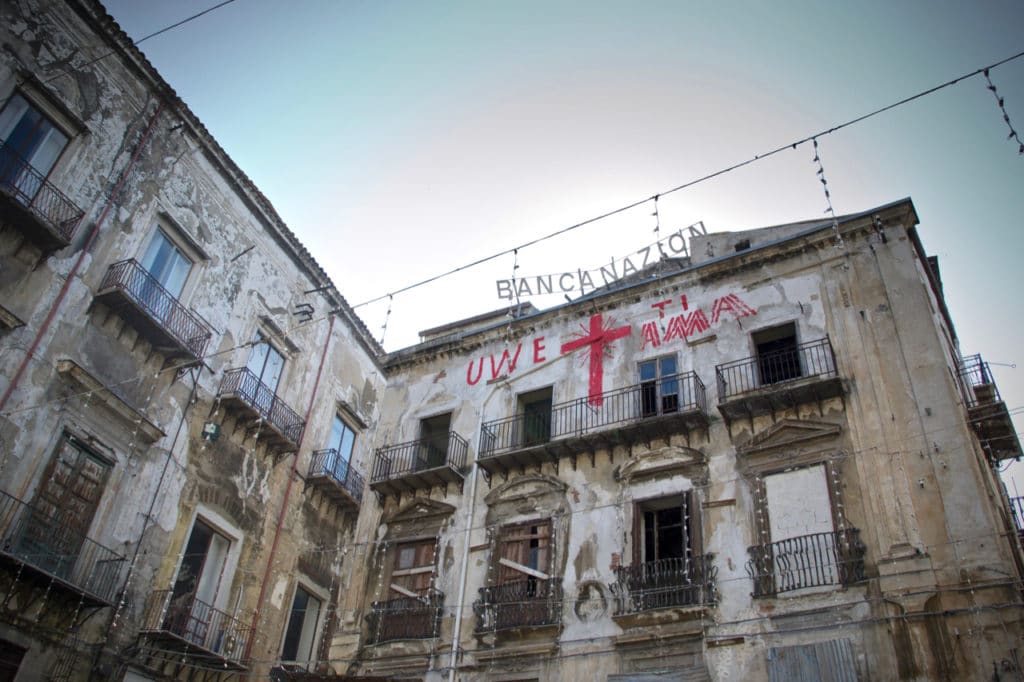
Wytske Versteeg – Quarantaine (Querido)
Alleen al vanwege de titel mag dit boek natuurlijk niet ontbreken in onze quarantaine-tijd! De egocentrische, gevoelloze plastisch chirurg Tomas Augustus heeft zich teruggetrokken in het souterrain van zijn gebarricadeerde huis in een Nederlandse stad omdat er een zeer besmettelijke, dodelijke ziekte heerst die al bijna de gehele bevolking heeft uitgeroeid. Tomas is een van de zeer weinige overlevenden. Elektriciteit, water en internet zijn afgesloten, winkels zijn geplunderd. Hij overdenkt en beschrijft zijn leven, waarin het laatste jaar voor de ziekte de jonge Maria een belangrijke rol vervulde. Hij ontmoette haar op een feestje waar hij met zijn vrouw Leanne was, die als een van eersten is gestorven ten gevolge van de ziekte.
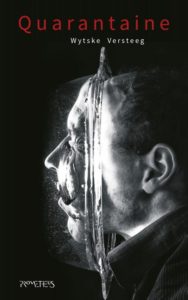
Quarantaine gaat over het belang van echt contact, liefde, aan te raken en aangeraakt worden. Iets wat we misschien de komende weken – of maanden – ook wel steeds meer gaan ervaren. Het hoofdpersonage Tomas Augustus is zijn hele leven niet in staat tot wezenlijk contact, hij heeft geen schijntje mensenliefde. Pas als hij terugkijkt op zijn leven, beseft hij – terugdenkend aan zijn liefde voor Maria – wat werkelijk van belang is in het leven, ondanks dat het dan al te laat is: er zijn weinig mensen meer over. Hij staat tegen het einde van de roman op straat te schreeuwen als er een vliegtuig overvliegt en neemt een seniel oud vrouwtje in huis. Hij wil zich verbinden: ‘Mijn handen hunkeren. (…) Mijn huid hongert.’ Eindelijk wordt hij een echt mens.
Aanraking afgezworen
Het ironische is dat juist door de heersende besmettelijke ziekte, aanrakingen afgezworen moesten worden en mensen met weinig contacten daardoor in het voordeel waren: ‘Het zijn de eenzamen die deze ziekte overleven, degenen die niet aanraken of worden aangeraakt en daarom veilig zijn.’
Quarantaine kan een dystopie worden genoemd: het boek geeft een somber beeld van de maatschappij in de nabije toekomst, een apocalyptische wereld, sterk gebaseerd op hedendaagse actualiteiten: ‘Onze angst bewaarden we voor andere zaken; we dachten veel aan terrorisme, vliegtuigrampen, af en toe aan het klimaat. Nog altijd bevond de ziekte zich op een ander continent, totdat dat plotseling niet meer zo was. Toen pas begon de paniek.’ Goh, waar kennen we dat van?
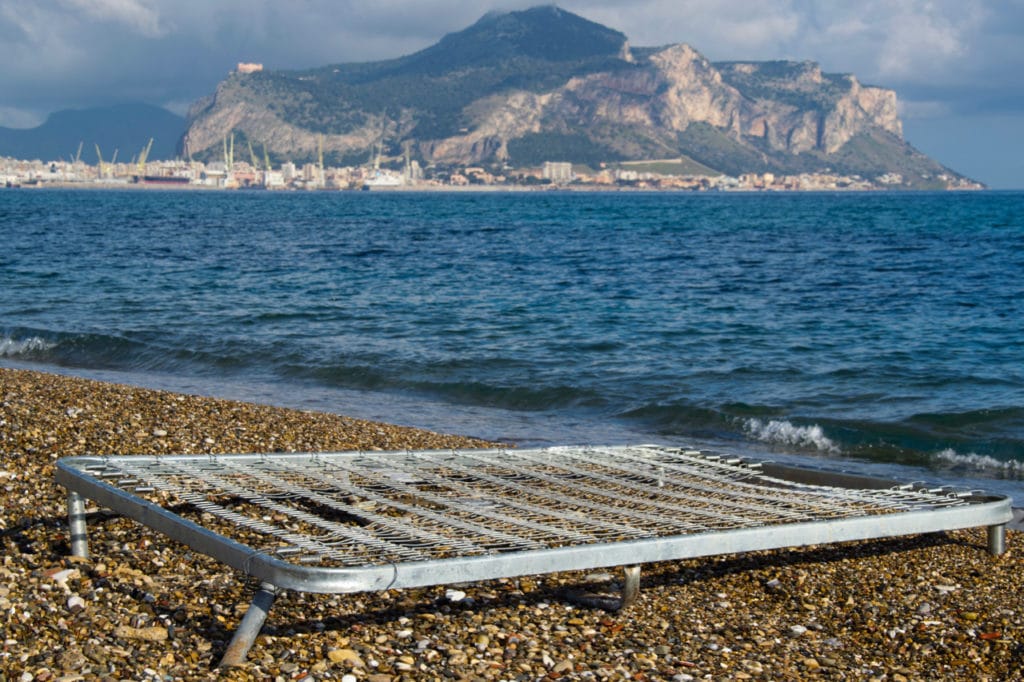
Roderik Six – Vloed (De Arbeiderspers)
Op het dak van een studentenflat bivakkeren vier jonge mensen: Victor, de ik-verteller; Nina, een vrouw met vele gezichten, aan wie een steekje los zit; Michael, de vriendelijkheid zelve, en zijn vriendin Joke. Door hun verrekijkers turen ze naar beneden. Het houdt maar niet op met regenen en het dal en de stad beneden zijn al volgestroomd met water. De vier zitten min of meer opgesloten in de toren en zijn de laatste overgeblevenen, alle andere bewoners zijn blijkbaar gevlucht of omgekomen – zwarte vogels pikken soms verlekkerd aan een lijk.
Het is een apocalyptische wereld die Roderik Six schetst in zijn debuutroman Vloed, dat terecht werd bekroond met de Bronzen Uil 2012. De hoofdpersonen geven zich aanvankelijk oeverloos over aan liefdeloze seks, drank en het roken van Ultra, een drug die het bewustzijn tijdelijk in tweeën splijt. Maar de sfeer wordt steeds grimmiger, de situatie steeds onheilspellender, en het blijft maar regenen, onafgebroken dalen de druppels neer en het wassende water komt hoger en hoger.
En het wordt nog erger.
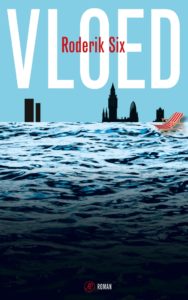
Onheilspellend
Vloed roept scènes in herinnering uit boeken en films over ecologische rampen en de ondergang van de aarde, The Birds van Hitchcock, de bizarre en vaak onheilspellende rolprenten van David Lynch, de bijbel. Tegelijk is het niets van dat alles. Six creëert al vanaf de eerste bladzijde een onderhuidse spanning. Hij wekt een wereld tot leven die zich toont als een hedendaags Sodom en Gomorra. Het laagje beschaving is flinterdun en wordt gemakkelijk weggespoeld. ‘Het water is niet tevergeefs gekomen,’ bedenkt de ik-verteller zich. ‘Hoogstens te laat.’
Tegelijk brengt de auteur de ‘verhaalwaarheid’ aan het wankelen, door te spelen met de fantasieën van de ik-verteller, de hallucinaties die Ultra veroorzaakt, de geheimzinnigheid rondom wat er nou eigenlijk precies aan de hand is. Hoe betrouwbaar is die Victor eigenlijk, als hem soms de lust bekruipt ‘het schilmes waarmee ik krielaardappeltjes halveerde langzaam tussen haar ribben te schuiven’, op het moment dat Nina hem weer eens loopt te sarren? Zou alles wat hij vertelt misschien niet één grote Ultra-hallucinatie kunnen zijn?
Six heeft zijn intrigerende verhaal bovendien ook nog in een levendige taal gegoten die bol staat van de rake beschrijvingen, beelden en metaforen. ‘Ik was in een verbale hinderlaag gevallen, bestookt door een zwerm woordkogels,’ zegt de verteller op een gegeven moment. Zo vergaat het ook de lezer ook. In afgepaste zinnen, trefzeker geformuleerd en goed gedoseerd, ontvouwt Six zijn indringende verhaal. De bloemrijke drugstrips zie je net zo voor je als de omgevallen, onder het gruis bedolven kartonnen vrouw die zonnebrandcrème aanprijst in een verwoeste apotheek. Om nog maar te zwijgen van wat ze aantreffen in een kloostertuin en een verlaten villa – sommige beelden vergeet je nooit meer.
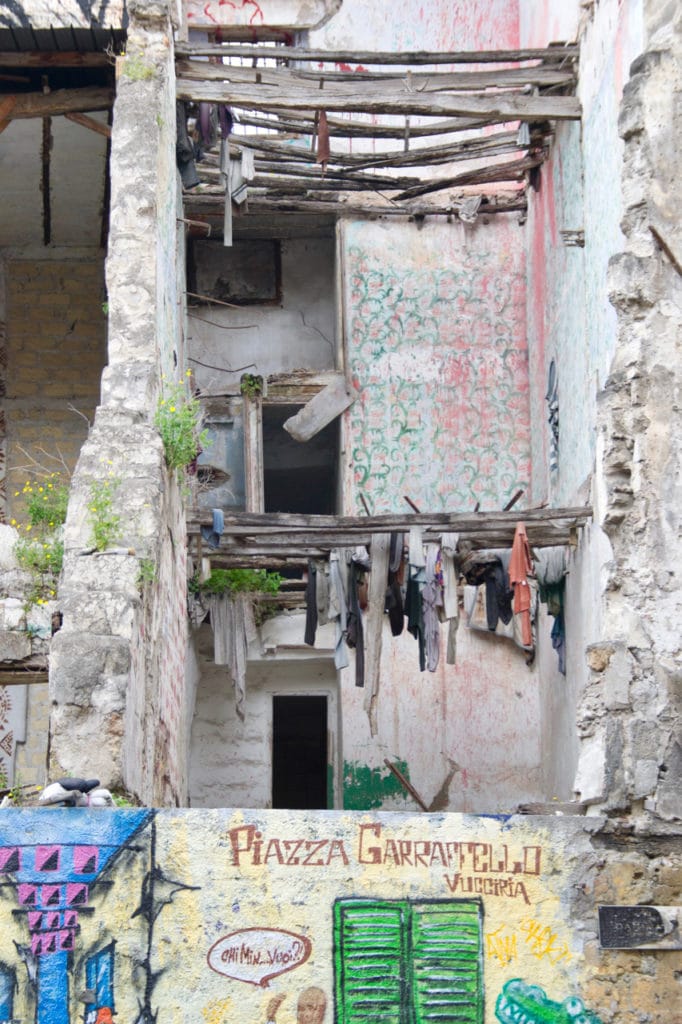
Davide Longo – De verticale man (De Geus)
‘Even voordat hij in slaap viel, bekroop hem voor het eerst een akelig voorgevoel van de dingen die stonden te gebeuren. Er kondigde zich een nieuw tijdperk aan, een sobere periode die lang zou aanhouden en waarin alles “minder” zou zijn, in tegenstelling tot de periode ervoor waarin “meer” het toverwoord was.’
We plaatsen natuurlijk al een interview met Davide Longo naar aanleiding van dit boek – want het was het eerste boek waar we aan dachten toen in Italië de pleuris uitbrak. (Dat interview lees je hier.) In zijn roman De verticale man schetst de Italiaanse schrijver Davide Longo een toekomstig, apocalyptisch Italië. Europa is niet meer wat het geweest is: de welvaart is verdampt en het recht van de sterkste neemt het langzaam over van gemeenschapszin en rede. Plunderende bendes trekken als een plaag sprinkhanen over het land en laten het kaalgevreten en kapot achter. Terwijl de grenzen sluiten en de bevolking zich verschanst in huizen of terugtrekt in berggebied, vluchten ook steeds meer mensen het land uit, naar Frankrijk of Zwitserland. Het is echter de vraag of het daar beter is, want van de vluchtelingen wordt zelden nog een teken van leven vernomen.
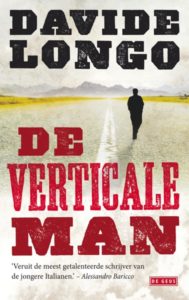
Kaalslag
Voor de hoofdpersoon van de roman, voormalig schrijver Leonardo, was het leven al jarenlang een kaalslag. Sinds een schandaal zijn carrière en gezinsleven verwoestte, leeft hij teruggetrokken in een dorpje. Schrijven doet hij al jaren niet meer, maar in zijn ‘bibliotheek’ vindt hij vrede. Leonardo is een man die een klein pupje van de dood redt, een man die zoekt naar schoonheid in het alledaagse, een man die weinig opzettelijk kwaad in zich heeft, maar ook niet heel moedig lijkt.
Het contrast tussen de wereld van de fantasie en literatuur en de harde, rauwe wereld die zich onherroepelijk aan hem opdringt, wordt steeds scherper. ‘Nu was zijn lichaam dat van een man van tweeënvijftig, die zijn leven wijdde aan boeken, intellectuele beschouwingen en aan de dialoog. Zaken die steeds minder nut hadden in de wereld die zich voor zijn ogen aan het ontvouwen was.’
Als zijn ex-vrouw op een dag op de stoep staat en hun dochter en haar zoon uit haar tweede huwelijk (tijdelijk) bij hem achterlaat, wordt Leonardo gedwongen keuzes te maken. Hij doet zijn uiterste best om goed voor hen te zorgen, maar is hij moedig genoeg om hen te beschermen?
Spiegel
Davide Longo refereert nadrukkelijk aan literaire voorbeelden als The Road van Cormac McCarthy, maar met De verticale man heeft hij een heel eigen en oorspronkelijke dystopische roman geschreven, die een spiegel vormt voor onze tijd. Niet een oorzaak van buitenaf, geen grote natuurramp of klimatologische ramp veroorzaakt de teloorgang van Europa, maar een proces van innerlijke degeneratie: als een cultuur op zijn hoogtepunt verkeert, volgt onverbiddelijk de neergang, al wordt die in de schoenen geschoven van de ‘externen’, zoals de mensen van elders worden aangeduid. Longo toont een wereld die weliswaar is uitvergroot, maar die misschien wel beangstigend dichter bij de werkelijkheid ligt dan we willen weten. Want hoeveel medemenselijkheid blijft er over als de mens zich in zijn eigen bestaan bedreigd voelt? Wat blijft er over van de beschaving als de welvaart verdwijnt en mensen op zichzelf en elkaar aangewezen raken voor voedsel, hulp of zorg?
Longo biedt de lezer geen happy end, maar wel de troost van zielenrust die voortkomt uit waarachtige keuzes en het aangaan van een diepe verbintenis met andere levende wezens, mens of dier. Daar kunnen we hoop aan ontlenen.
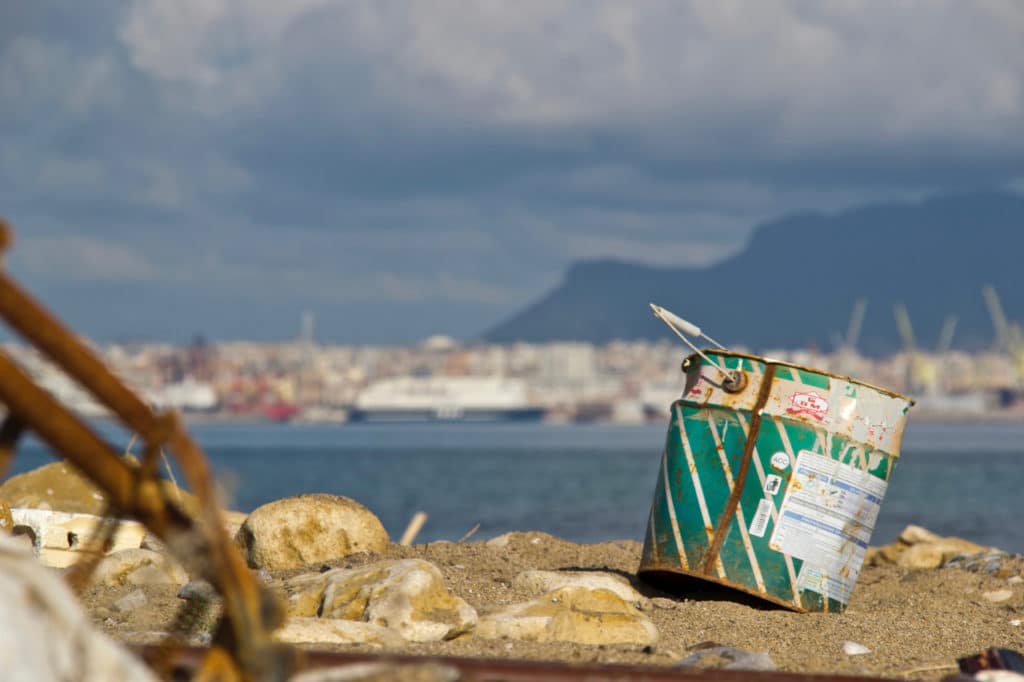
Margriet de Moor – De verdronkene (AtlasContact)
Geen dystopie maar een verhaal dat zich afspeelt rond een ramp die daadwerkelijk heeft plaatsgevonden is De verdronkene van Margriet de Moor. Met de waarschuwing van Rutger Bregmans Het water komt nog in de oren kan het misschien geen kwaad nog eens te lezen over wat er in 1953 gebeurde en de gevolgen van die watersnoodramp. Nou ja, het is vooral een verhaal over de twee zussen Lidy en Armanda.
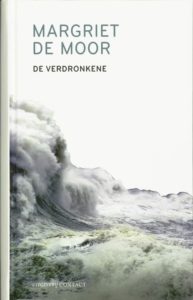
Armanda vraagt Lidy om een verplichting van haar over te nemen in Zeeland, omdat ze eigenlijk een nacht wil doorbrengen met haar zwager Sjoerd wil doorbrengen. Maar juist dat weekend slaat het noodlot toe en komt Lidy om bij de vloedgolf die Schouwen-Duiveland overspoelt. Hierna neemt Armanda Lidy’s plaats in. Toch is het leven waar ze naar verlangde niet bevredigend, omdat het niet haar rechtmatige leven is.
De dramatische kracht van De verdronkene schuilt in sublieme passages over de drie onafzienbaar lange, helse dagen waarin Lidy haar dood tegemoet gaat. Indringende scènes die alle corona-ellende bijna letterlijk (voor even althans) doet wegspoelen.
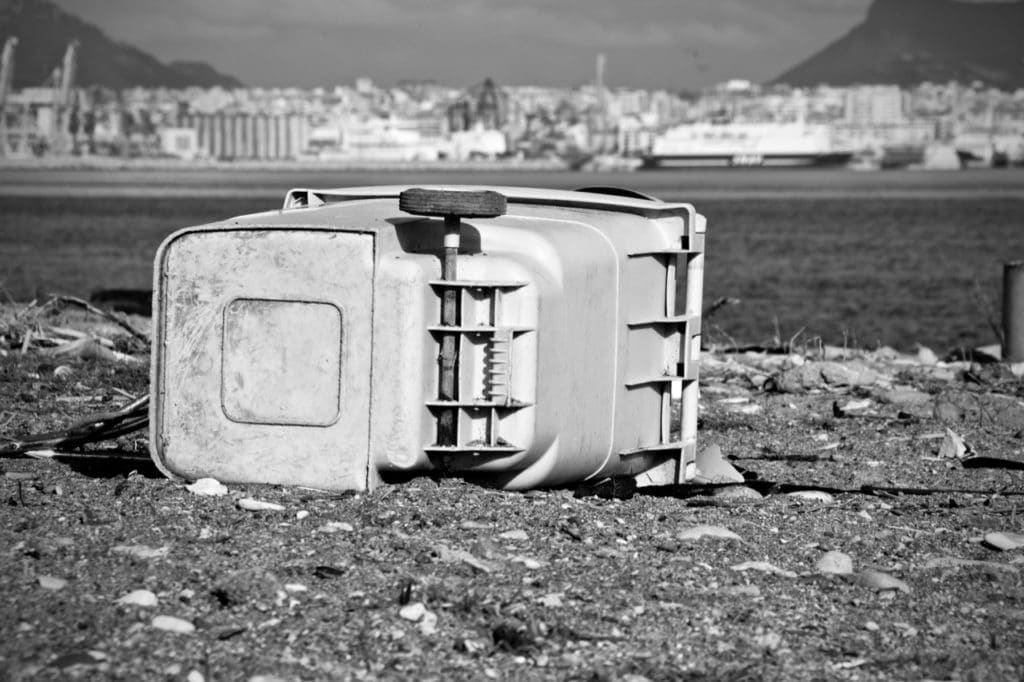
Thea Beckman – Kinderen van Moeder Aarde (Lemniscaat)
Goed, misschien een beetje smokkelen, deze klassieker, want het gaat natuurlijk minder over een mondiale ramp dan over de periode ná zo’n ramp. Maar toch, zeker in de wereld van vandaag doet dit boek heeft wel verdacht veel raakvlakken met wat er gaande is hier op aarde. Door een kernoorlog is de aarde gekanteld en zijn de polen verplaatst, waardoor het klimaat op aarde volkomen is veranderd en bijvoorbeeld het ijs op Groenland is gesmolten. Kleine groepjes mensen hebben de ramp overleefd. Thule, het vroegere Groenland, is een prachtig, groen eiland geworden waar Moeder Aarde nu wél goed wordt behandeld. Vrouwen vormen er de regering, omdat mannen hebben laten zien dat ze niet goed omgaan met macht en met hun leefomgeving. Maar dan wordt dit paradijselijke oord opnieuw bedreigd.
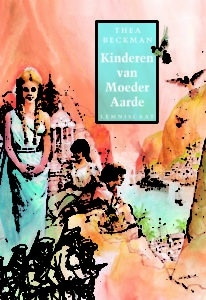
Kinderen van Moeder Aarde behoort tot de klassiekers van de jeugdliteratuur en is een van de meest geliefde boeken van Thea Beckman. Net iets lichter en hoopvoller dan de andere titels, en bovendien: met een happy end. Het is niet voor niets dat debatcentrum De Nieuwe Liefde recent juist dit boek koos voor de aftrap van een nieuwe serie Toekomstlezers, waarbij klassieke maar vooruitziende jeugdboeken worden gebruikt als uitgangspunt voor een gesprek over het heden en de toekomst. Kinderen van Moeder Aarde is een boek waar we nog steeds mee vooruit kunnen.
(óók als je een boek op internet bestelt in plaats van in de winkel zelf, doe dat dan op de website van jouw boekhandel zelf in plaats van bij die grote internetreuzen! Juist de boekwinkels hebben alle steun nu hard nodig. De Boekenweek is verlengd tot het einde van de maand, zodat iedereen die dat wil het Boekenweekgeschenk kan bemachtigen.)
